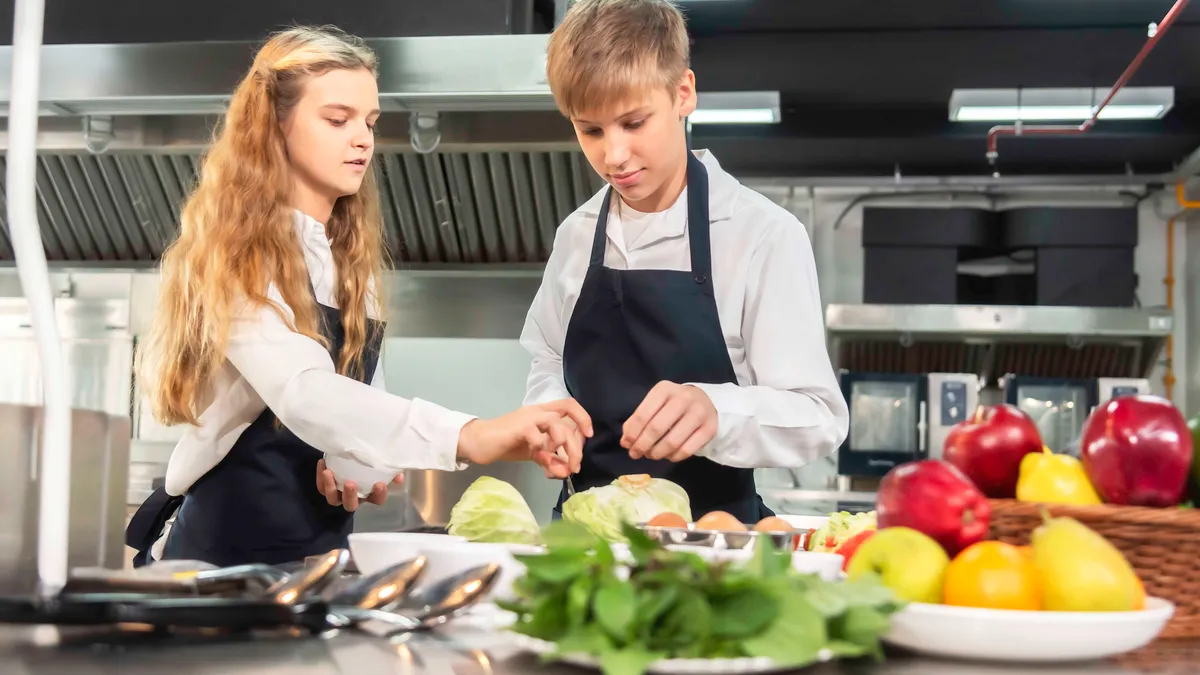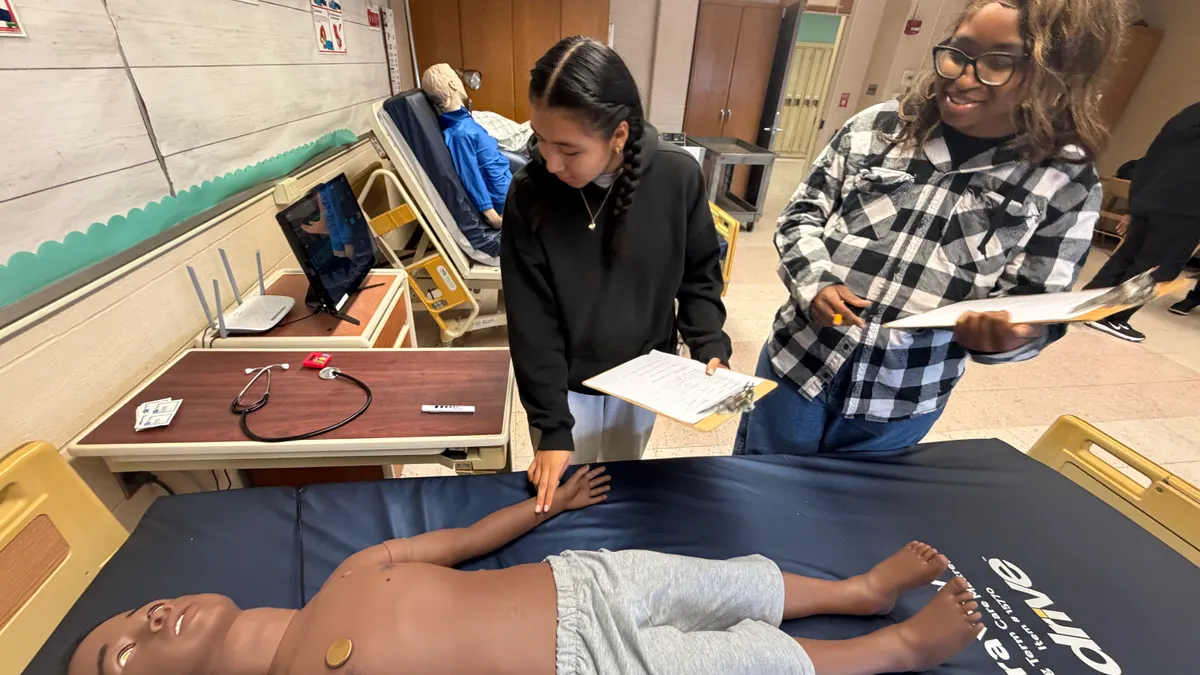A dinner reservation at the Broadmoor Bistro in Overland Park, Kansas, is a popular one. Showcasing a Farm to Table initiative from field to plate, the restaurant serves up tomatoes, sweet potatoes, carrots, peppers and micro greens grown at the Broadmoor Urban Farm, and diners can also order pasta or rotating flatbread wood-fire pizzas, among other menu items.
The staff is dedicated, says Matthew Ziegenhorn, who adds that professionalism is key. After all, their work is being graded: The student-run Broadmoor Bistro is located inside the Shawnee Mission School District’s Center for Academic Achievement.
Ziegenhorn, entrepreneurial leadership instructor for the Shawnee Mission School District, says the best part of his job is watching students first enter the program who may not have been the perfect scholar in class, but who now feel driven and challenged.
“When I see the switch get flipped, it’s pretty incredible,” Ziegenhorn says. “A student is brought in that hasn’t been successful in the classroom before and is now getting that grit and determination and challenging themselves every week to be a little bit better.”
Academic skills from algebra to essay writing are taught across high schools every day. But soft skills can be just as critical to students' ability to succeed, whether they’re heading off to college or launching their career path after graduation.
At student-run cafes and restaurants across the country, school district programs are helping learners develop these tools — from the patience required to handle a frustrated customer and the teamwork to pull off meals to the problem-solving needed when people call in sick or a night’s dinner seating is fully booked.
At these cafes and restaurants, students walk away with some crucial life skills that may serve them as aptly as the research, data analysis and reading comprehension skills they build in the classroom.
Understanding basics, from cooking to courtesy
Ziegenhorn knows that every student who comes through the program won't work in a restaurant, but what they do learn are some of the basic skills that benefit nearly any adult: knowing how to prepare meals on their own.
“Our founder said, ‘Maybe I don’t need everyone to run a restaurant, but to know they can cook and grow their own food,’” says Ziegenhorn.
Students can start as early as 10th grade in the culinary arts program, says Ziegenhorn. Classes include culinary arts, commercial baking and an internship that allows students to work in the restaurant, says Ziegenhorn. The latter track also instills that each student treats diners with courtesy, politeness and respect.
“I’m driving home that these are more than customers, these are guests,” he says.
Mastering soft skills
At Centennial High School in Corona, California, culinary arts teacher Tiffany Fujita is also focused on the soft skills students gain through the three-year culinary arts pathway and the time they may spend working at Café 10, a student-run eatery on campus. Among those skills: the ability to lead a group of people and to handle constructive criticism central to any job.
“A lot of kids don’t handle constructive criticism, fix a mistake and move forward,” Fujita says. “They may not like how that person talked to them, but regardless of the field you’re in, there are challenges, and so they’re leaving with skills they can use anywhere.”
While students aren't paid for their work, they gain experience for their resume. That includes practical skills such as the proper temperature for storing food and management skills like tracking inventory, so diners can count on a cup of coffee every morning.
Fujita says the cafe was open four days a week for breakfast and three days a week for lunch to staff who come to buy lattes, hot chocolates, scones, breakfast sandwiches and more. During lunch, they may come in for a cheeseburger, a veggie burger or a chicken sandwich with options that include a chipotle aioli, which Fujita says “our staff goes crazy for.”
Ultimately, Fujita says that she feels the students walk away with self-assurance to go forward with the pathways they choose for themselves.
“Teaching them those sorts of things has given them the confidence to get a job,” Fujita says. “They say, ‘I know how to do this. I’ve been doing it for the last year.'”
Learning employability
Michael Szalkowski, a graduate of The Culinary Institute of America, says what his students walk away with from helping to run The Executive Grille at East Tech Campus in Ohio's Cleveland Metropolitan School District, are life skills that include knowing how to cook for their family and the tools to find — and hold onto — a solid job one day.
Szalkowski, one of the program’s culinary instructors, says that while students tend to lean on texting to communicate with peers, The Executive Grille requires them to learn how to interact with people face-to-face, picking up on social cues, body presence and body language.
“It’s the most important soft skill I can give them,” he says.
The restaurant, which Szalkowski says has a “great fan base,” is open to the public two days a week. There is a standard menu and a special weekly menu, which can include fried catfish with greens one week or tamales the next. Students learn how to work each of the different stations, which include sautéing, grilling, training on the point of sale machine, and taking turns sweeping, mopping and doing laundry.
Szalkowski says he has heard from some students who say he was hard on them during the program, but they now get the life lessons he was teaching.
“Once you give them a pastry bag and knife and cutting board, you see the light go on, and they’re interested in learning,” he says. “You know that kid is coming to school every day where they haven’t before, because he doesn’t want to miss class. It’s a community that comes together.”






 Dive Awards
Dive Awards












